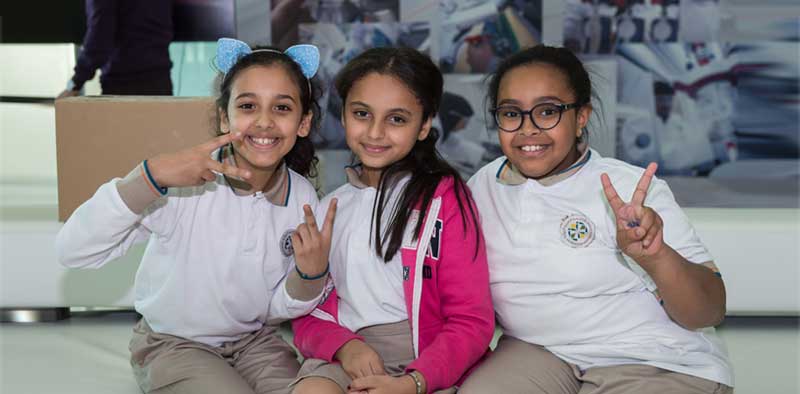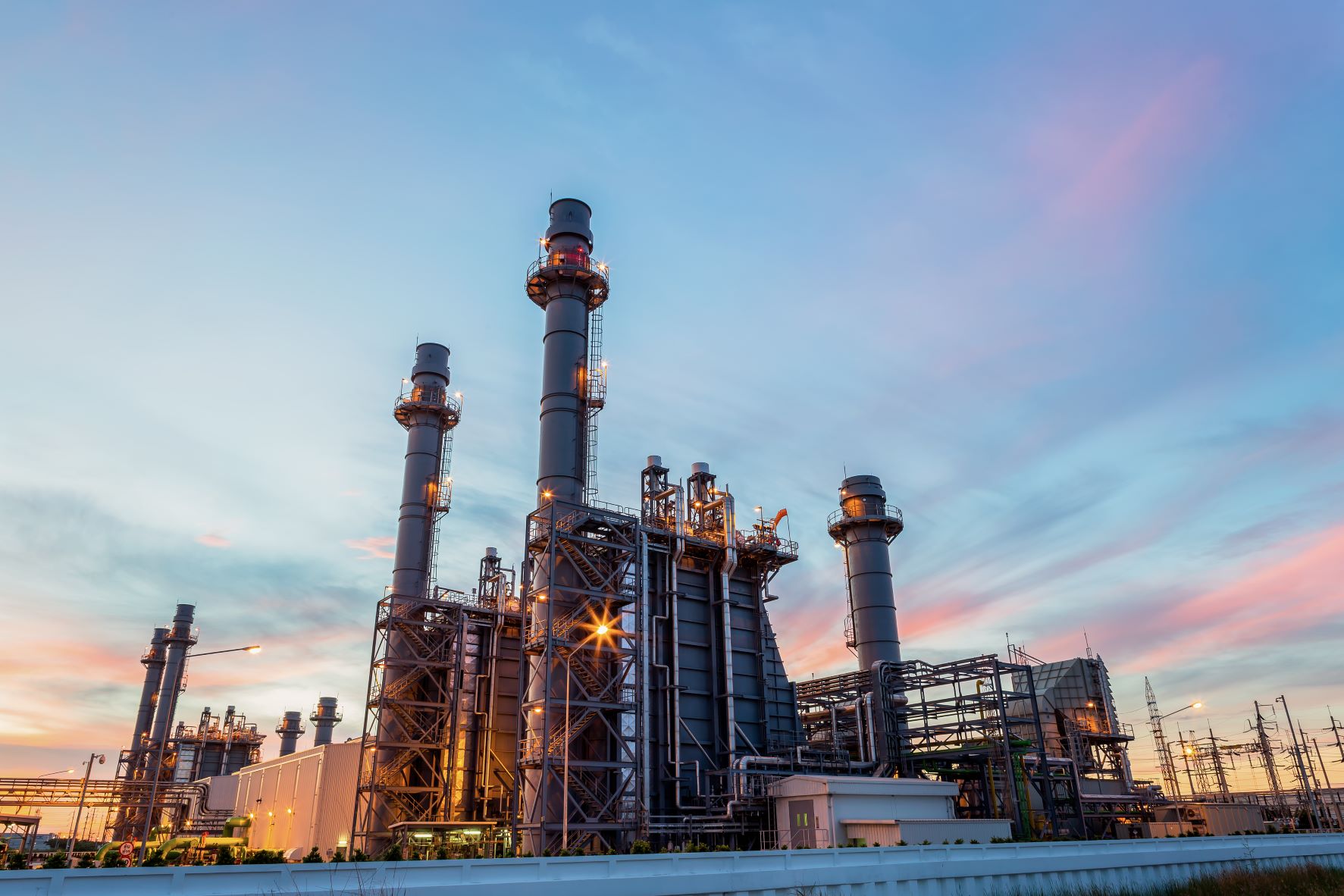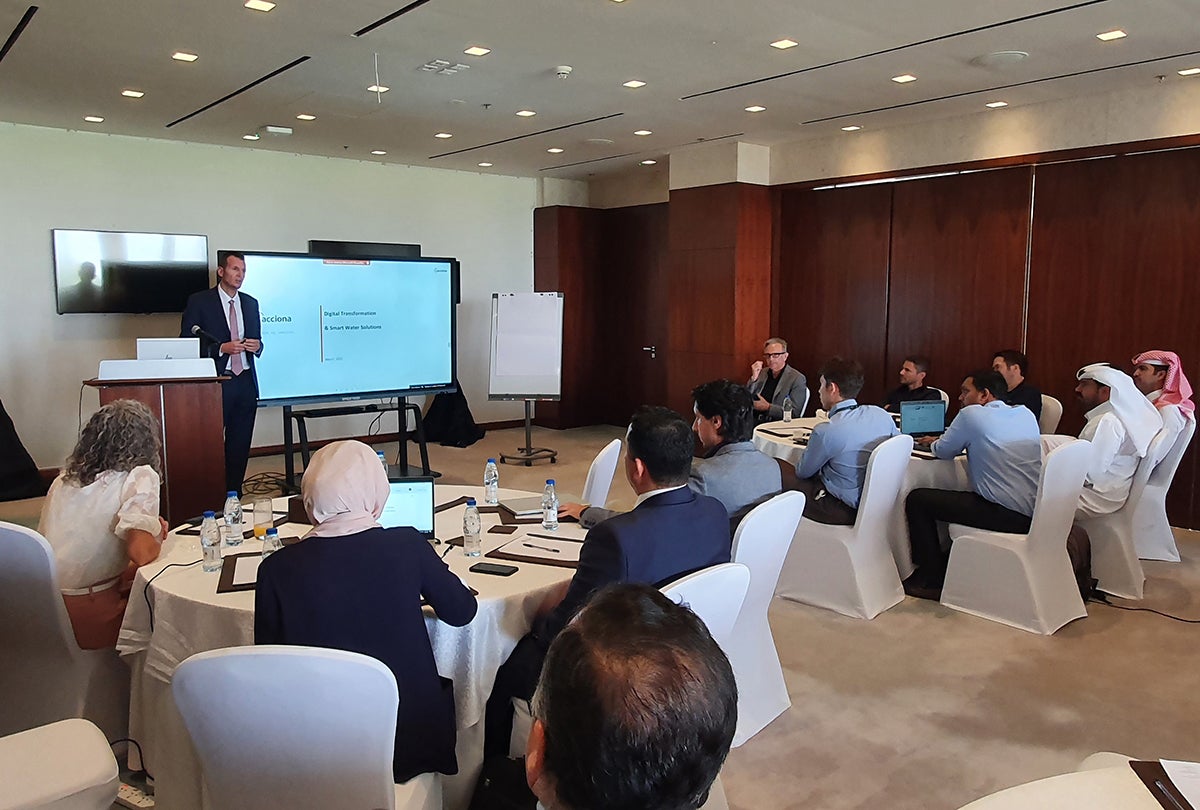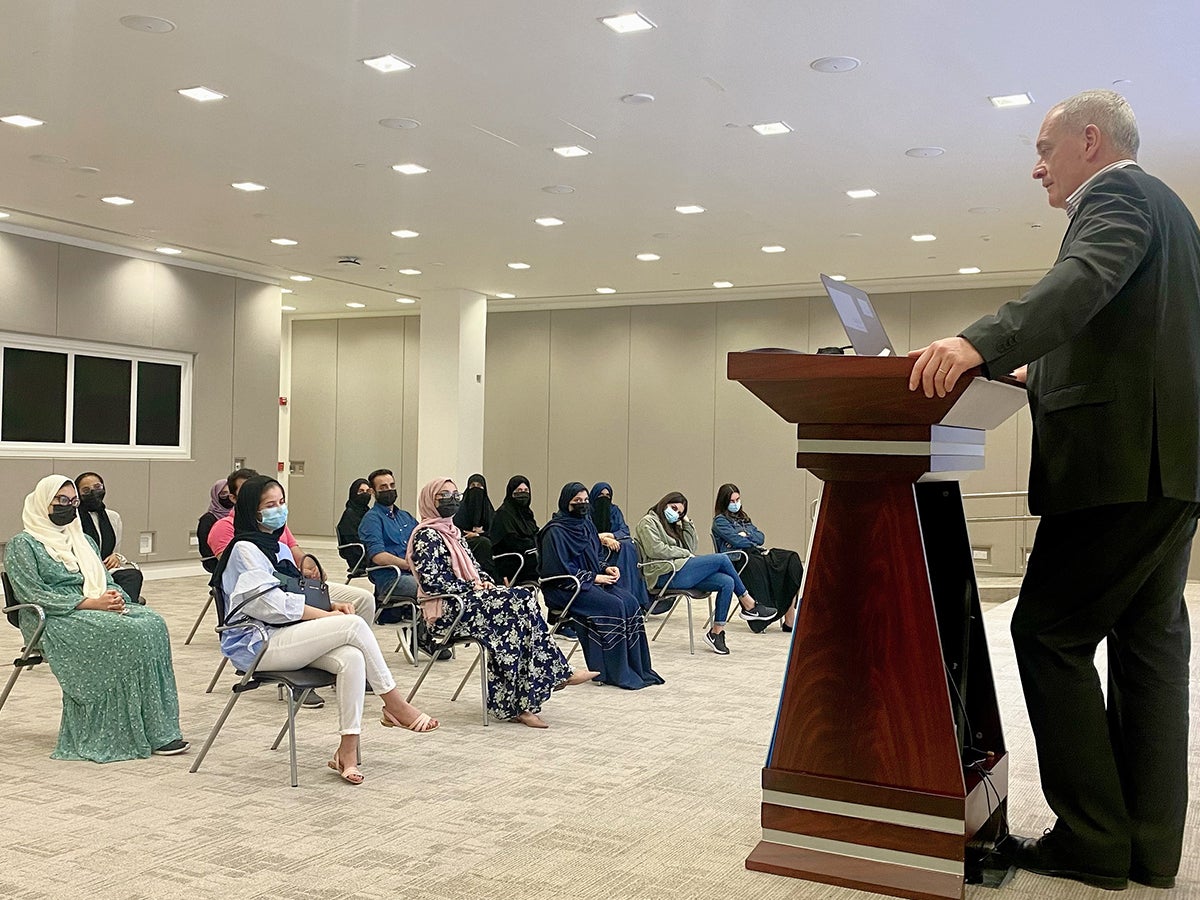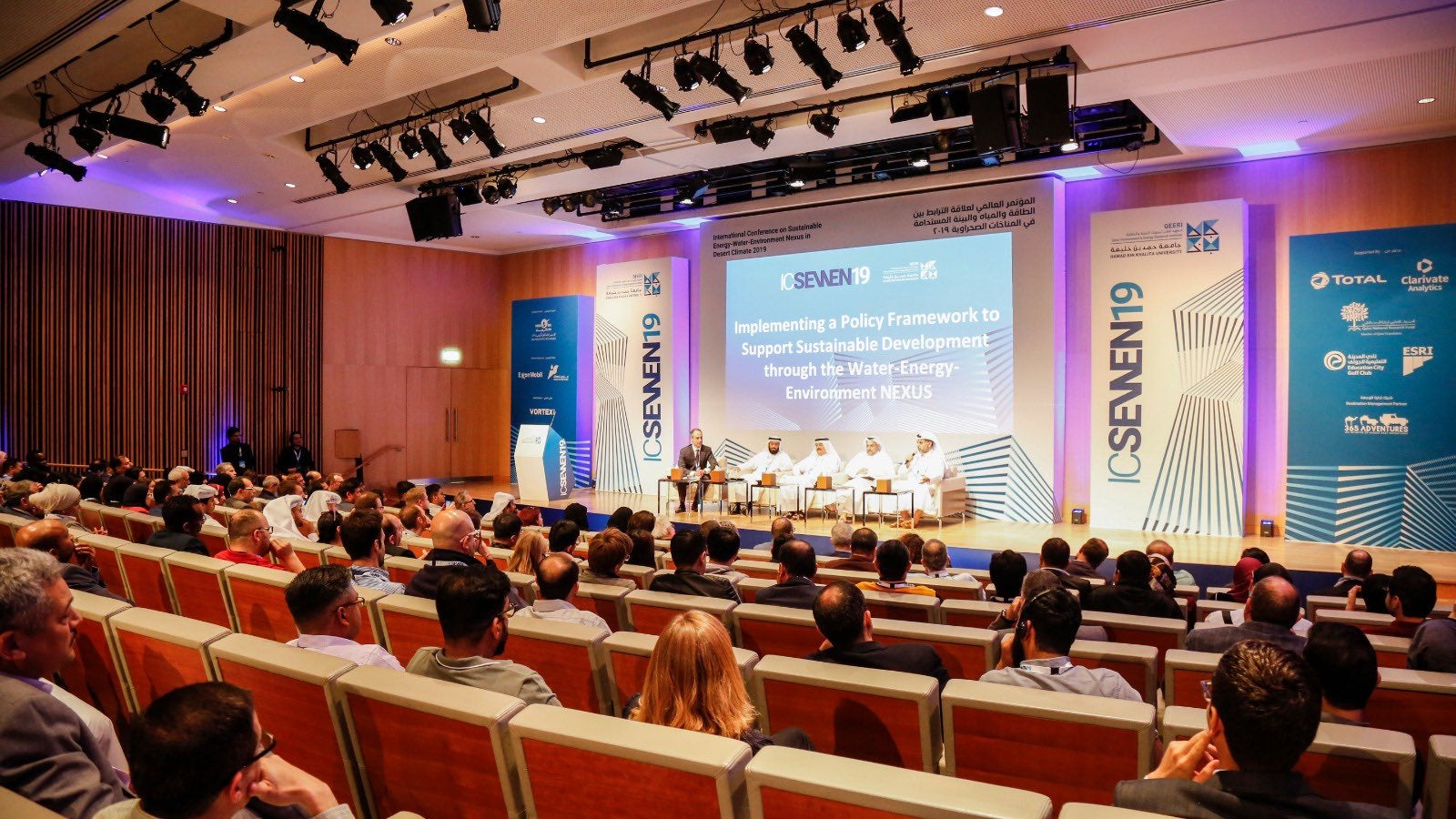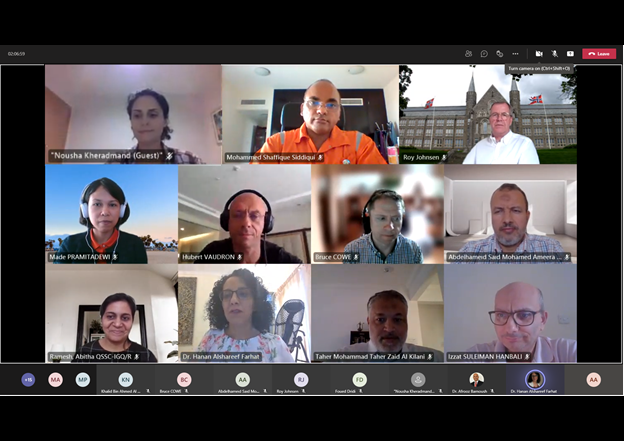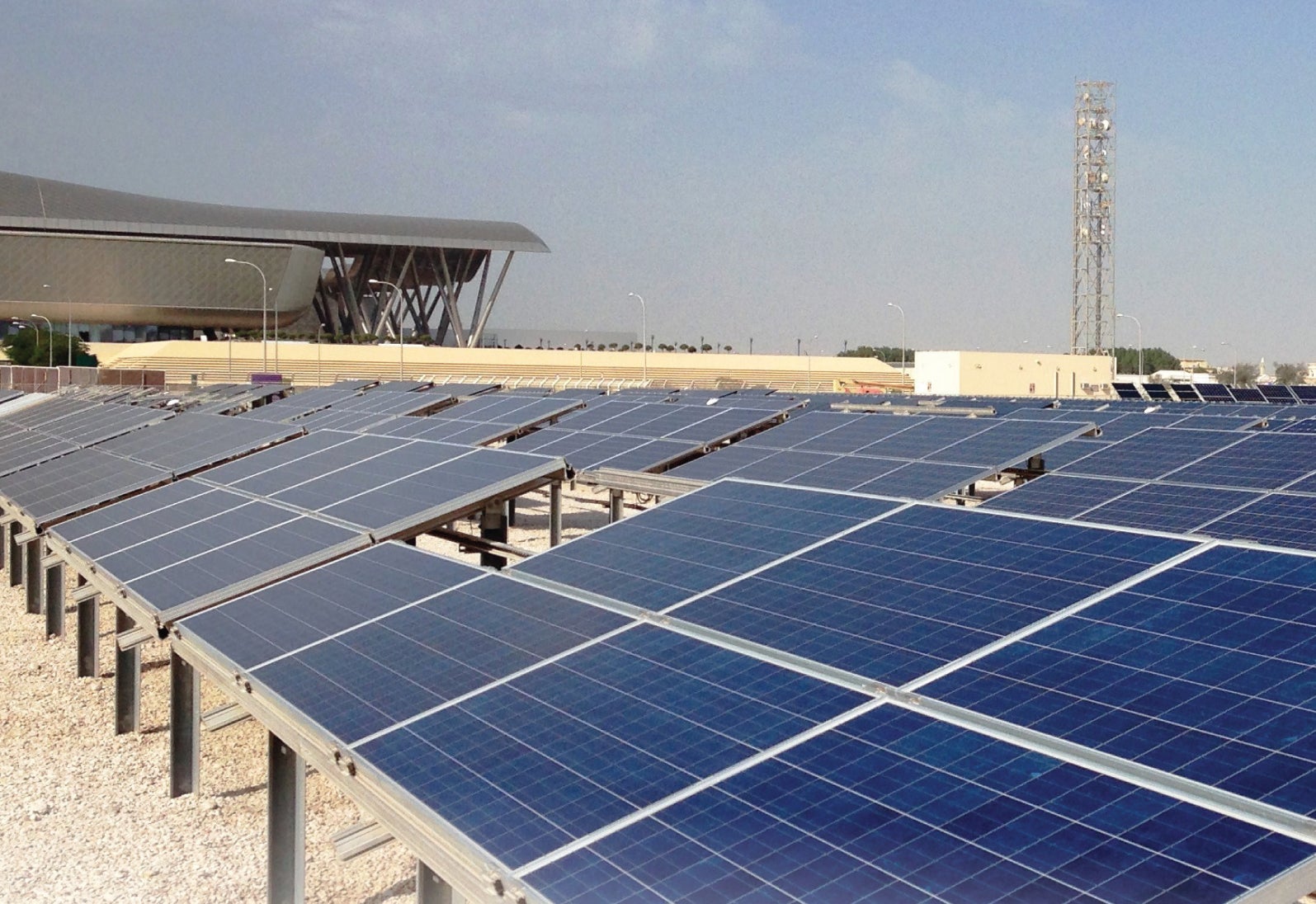
QEERI Showcases Sustainability Research at COP24
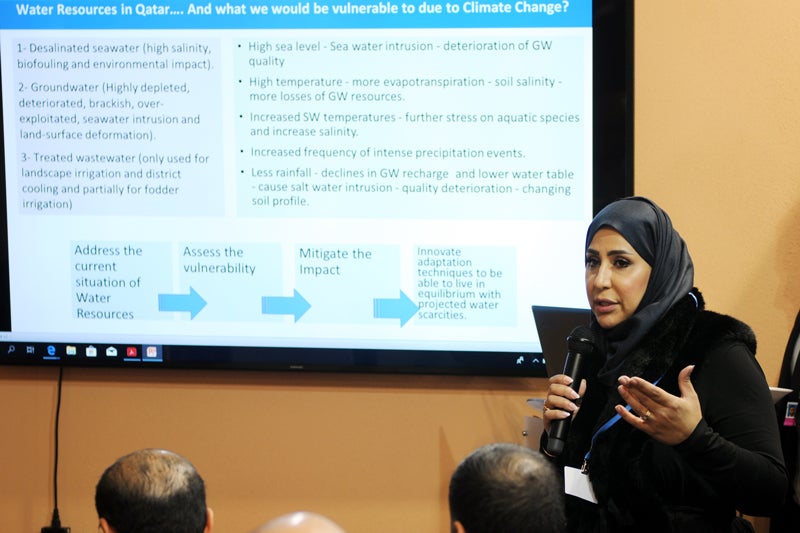
Three senior representatives from Qatar Environment and Energy Research Institute (QEERI), part of Hamad bin Khalifa University (HBKU), were members of the Qatari delegation at the 24th Conference of the Parties (COP24) to the United Nations Framework Convention on Climate Change (UNFCCC) recently held in Katowice, Poland. The team of scientists showcased the work that QEERI is doing in the spheres of energy, environment and water security research and development.
Mohammed Ayoub, who leads the Air Quality and Climate Change program at QEERI, and Dr. Huda Al Sulaiti, who heads the Water Group, participated in a side event organized by Qatar’s Ministry of Municipality and Environment (MME) at COP24, where they addressed research related to water security, air quality and food security in Qatar within the context of climate change. Dr. Veronica Bermudez, senior research director for energy, highlighted QEERI’s research to develop and promote the implementation of sustainable renewable energy approaches in the country.
Dr. Al-Sulaiti highlighted the water security challenges facing Qatar in the context of climate change, stating that, with proper management, the country can avert an anticipated water deficit in 2050. She also spoke about the increased risks of limited resources posed by climate change, and the adaptive technologies research conducted at QEERI. She also drew attention to the development of advanced materials for desalination and water treatment that are energy-efficient and cost-effective, including filtration membrane and new desalination technologies.
Mohammed Ayoub spoke about the impact of climate change on meteorology and air quality in Qatar. He noted that QEERI focuses on building knowledge and developing capabilities in understanding and addressing air pollution, and the impact of air pollution in Qatar. He also touched on the increase in frequency of sand/dust storms and rain events over the past decade, and further highlighted the trend of increasing dust capacity of the regional atmosphere.
During her session, Dr. Bermudez highlighted the strong relationship between climate change and energy security for Qatar. She explained that renewable energy has undergone a dramatic transformation in the last 5 to 8 years; the cost of solar energy has dropped by around 70 percent in this period and it is today a compelling pathway for decarbonization and further reduce CO2 emissions.
Dr. Bermudez detailed QEERIs efforts in developing a solar resource assessment and forecasting map for Qatar to support national stakeholders in achieving their targets for solar PV integration. She also spoke about the impact of the introduction of electric vehicles as per green car initiative from an electricity grid point of point, and how QEERI has identified the challenges and difficulties to perform a proactive support to the country economy.
“This has been an incredible opportunity for our institute,” said Dr. Marc Vermeersch, executive director of QEERI. “Together with our national stakeholders such as the Ministry of Municipality and Environment, we are committed to enabling Qatar in tackling its grand challenges in energy, water, and environment. It has been a true privilege to have three of our senior representatives participate in this important event, as part of the Qatar delegation.”
Mr. Abdulhadi Almarri, Director of Climate Change Department at the Ministry of Municipality and Environment, added: “With its skilled scientists and unique facilities and capabilities, QEERI plays a key role in providing a better scientific understanding of the environmental issues affecting the country including climate change. QEERI is a valuable partner in implementing the appropriate solutions for Qatar. We are delighted that they were part of our COP24 delegation among other national partners.”
QEERI aims to tackle the grand challenges of the State of Qatar and the region by conducting groundbreaking research and providing robust data that may influence policymaking for future sustainability, environment, energy and water security.
Related News
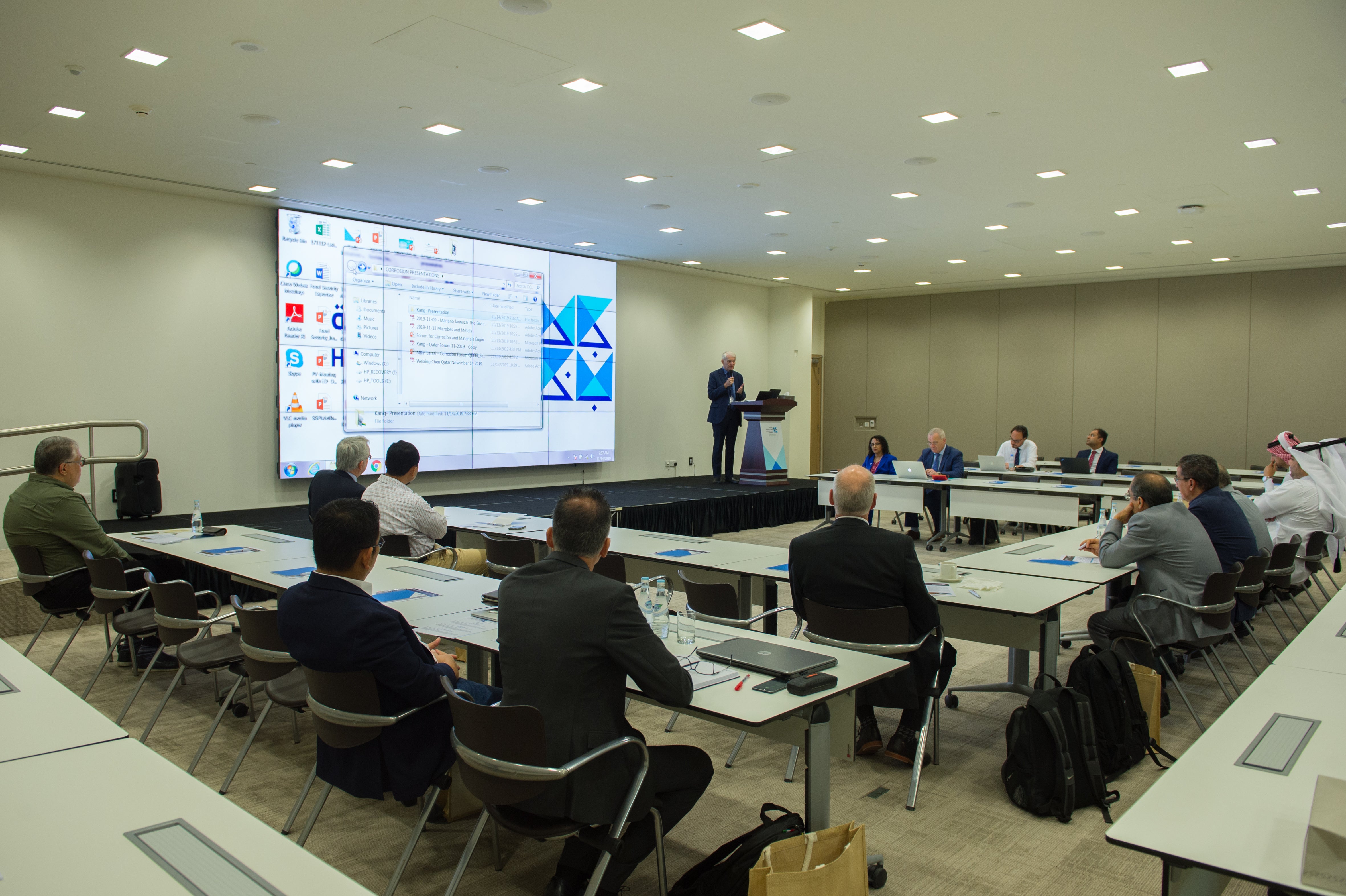
QEERI’s Newly Launched Corrosion Center Organizes Forum to Tackle Impact of Corrosion on Environment
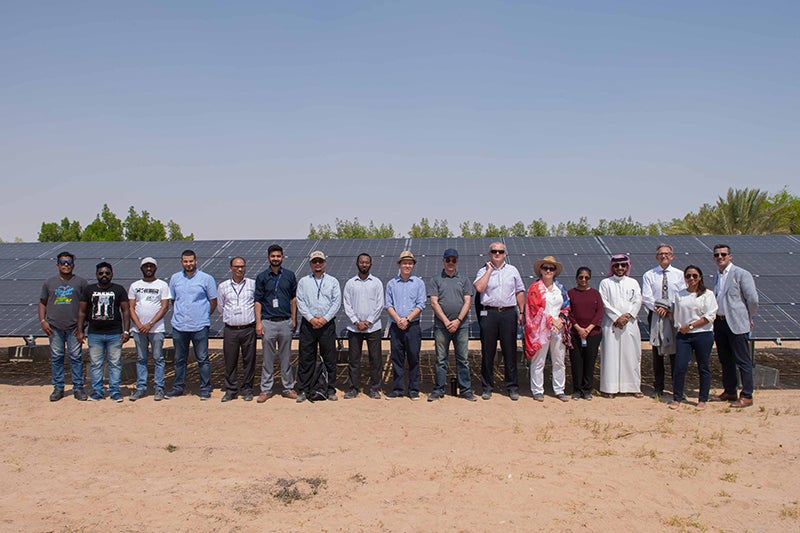
HBKU’s QEERI Launches Pilot Project to Supply Sustainable Energy to Farms in Qatar
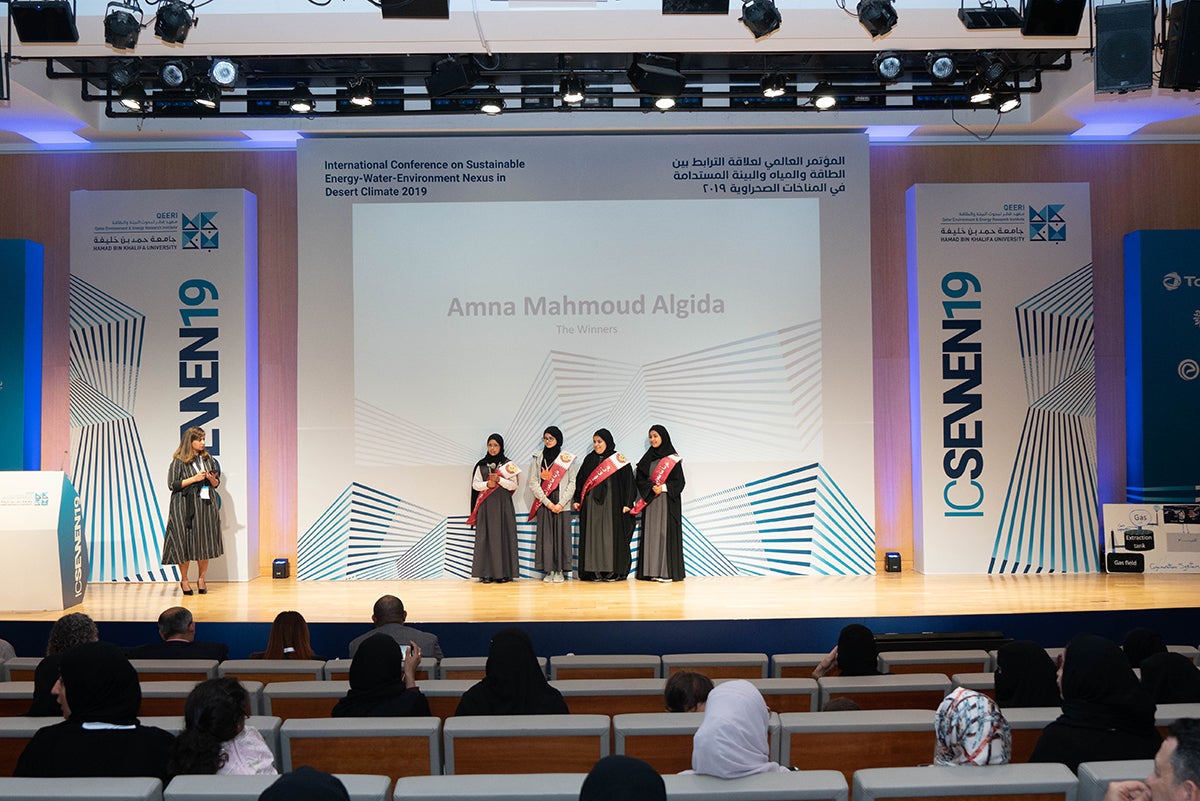
Third Edition of QEERI’s Young Innovator Awards Invites Youth to Create New Solutions and Enhance Sustainability for Arid Environments

HBKU’s Qatar Environment and Energy Research Institute Hosts ISO Meeting to Discuss Worldwide Corrosion Standards for Oil and Gas Industry
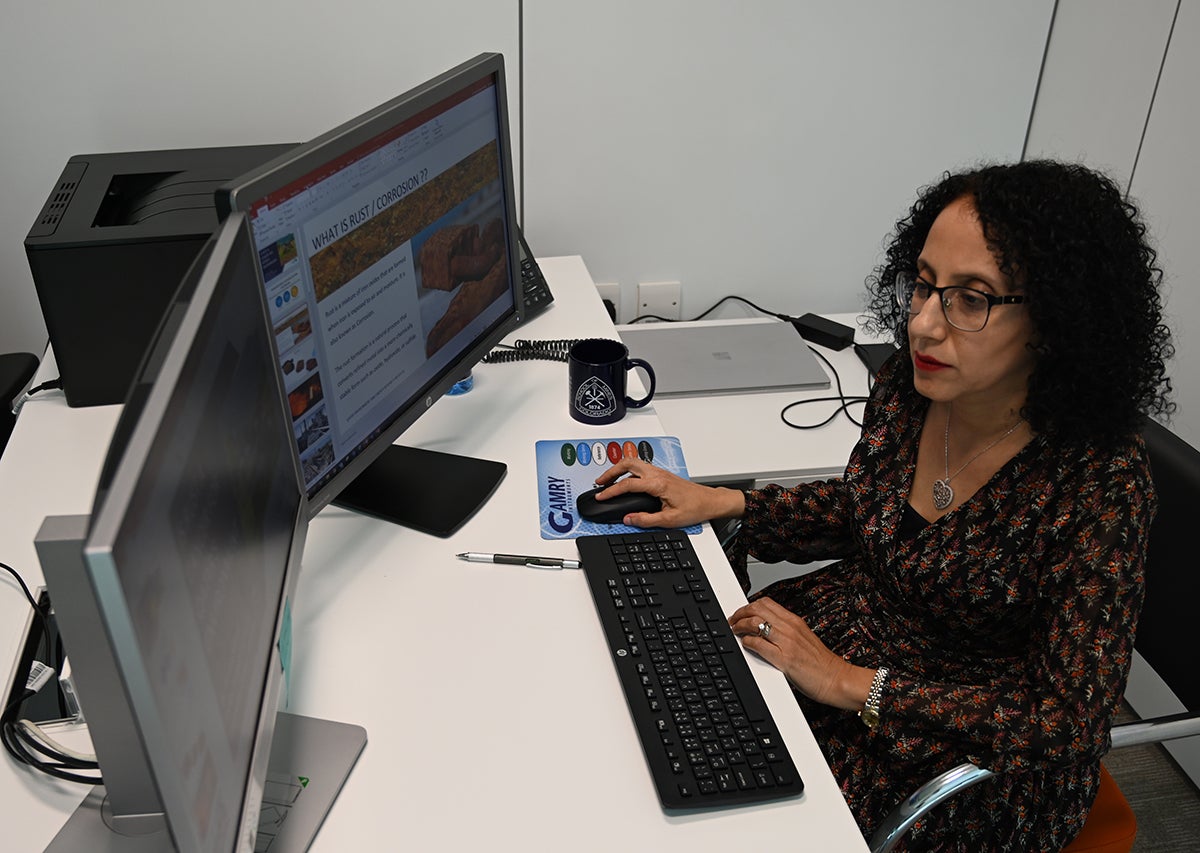
Qatar Environment and Energy Research Institute Holds Science Majlis to Tackle the Challenges of Corrosion
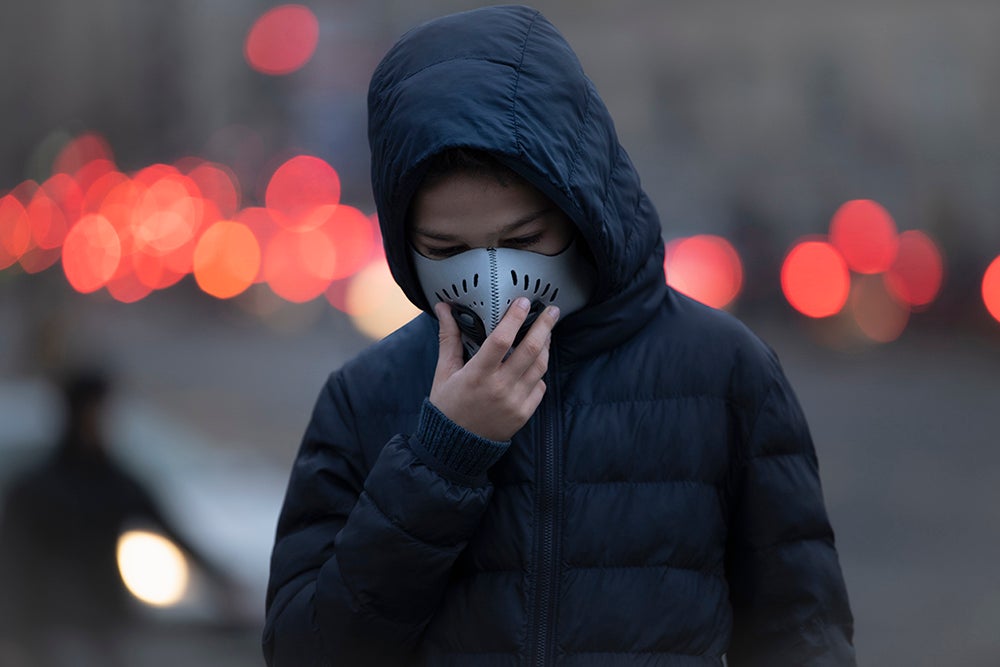
Air Quality in focus for SC collaboration with HBKU’s Qatar Environment and Energy Research Institute (QEERI)
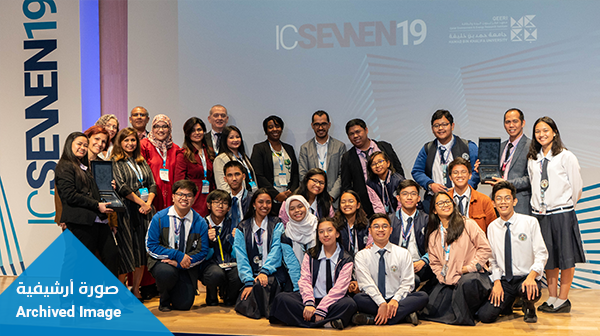
HBKU’s Qatar Environment and Energy Research Institute Announces Young Innovator Awards Competition 2020
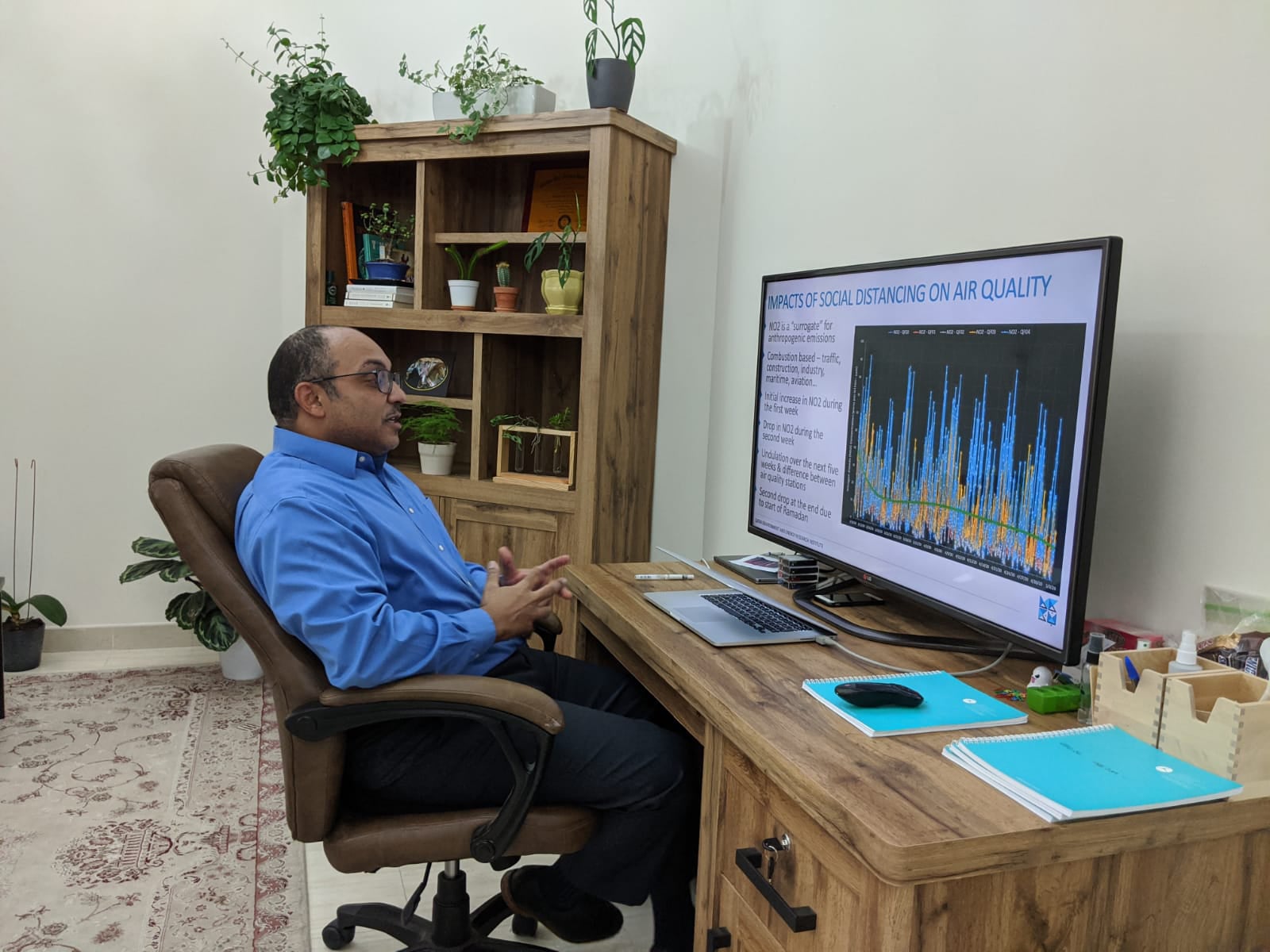
HBKU’s Qatar Environment and Energy Research Institute COVID-19 Webinar Series Tackles Impact on Natural Resources
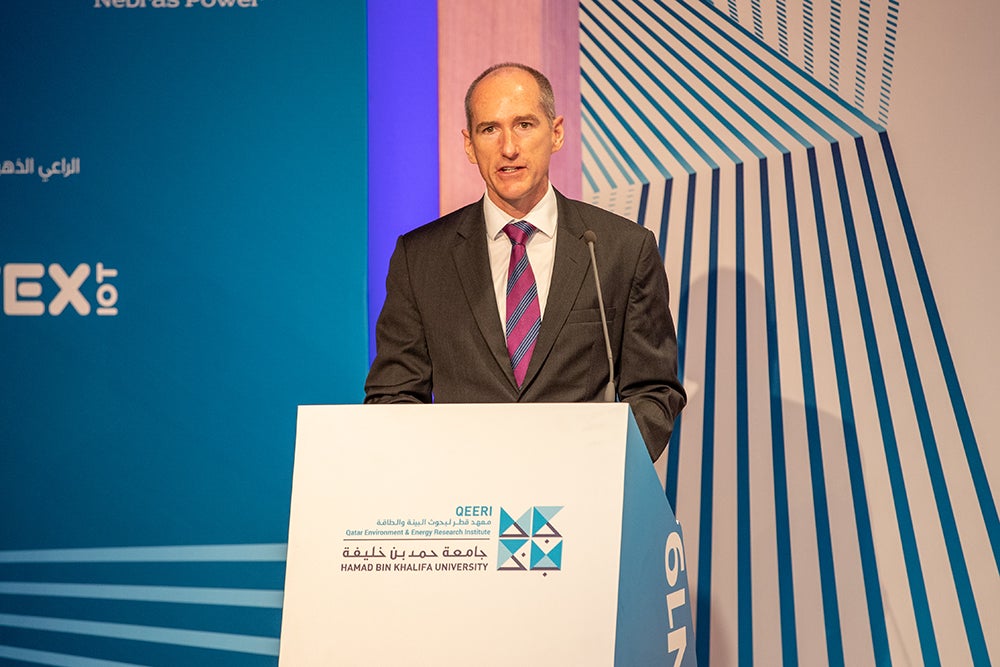
Qatar Environment and Energy Research Institute Conference Tackles Desert Climate Challenges

QEERI’s Newly Launched Corrosion Center Organizes Forum to Tackle Impact of Corrosion on Environment

HBKU’s QEERI Launches Pilot Project to Supply Sustainable Energy to Farms in Qatar

Third Edition of QEERI’s Young Innovator Awards Invites Youth to Create New Solutions and Enhance Sustainability for Arid Environments

HBKU’s Qatar Environment and Energy Research Institute Hosts ISO Meeting to Discuss Worldwide Corrosion Standards for Oil and Gas Industry

Qatar Environment and Energy Research Institute Holds Science Majlis to Tackle the Challenges of Corrosion

Air Quality in focus for SC collaboration with HBKU’s Qatar Environment and Energy Research Institute (QEERI)

HBKU’s Qatar Environment and Energy Research Institute Announces Young Innovator Awards Competition 2020

HBKU’s Qatar Environment and Energy Research Institute COVID-19 Webinar Series Tackles Impact on Natural Resources

Qatar Environment and Energy Research Institute Conference Tackles Desert Climate Challenges

QEERI’s Newly Launched Corrosion Center Organizes Forum to Tackle Impact of Corrosion on Environment

HBKU’s QEERI Launches Pilot Project to Supply Sustainable Energy to Farms in Qatar

Third Edition of QEERI’s Young Innovator Awards Invites Youth to Create New Solutions and Enhance Sustainability for Arid Environments

HBKU’s Qatar Environment and Energy Research Institute Hosts ISO Meeting to Discuss Worldwide Corrosion Standards for Oil and Gas Industry

Qatar Environment and Energy Research Institute Holds Science Majlis to Tackle the Challenges of Corrosion

Air Quality in focus for SC collaboration with HBKU’s Qatar Environment and Energy Research Institute (QEERI)

HBKU’s Qatar Environment and Energy Research Institute Announces Young Innovator Awards Competition 2020

HBKU’s Qatar Environment and Energy Research Institute COVID-19 Webinar Series Tackles Impact on Natural Resources

Qatar Environment and Energy Research Institute Conference Tackles Desert Climate Challenges

QEERI’s Newly Launched Corrosion Center Organizes Forum to Tackle Impact of Corrosion on Environment

HBKU’s QEERI Launches Pilot Project to Supply Sustainable Energy to Farms in Qatar

Third Edition of QEERI’s Young Innovator Awards Invites Youth to Create New Solutions and Enhance Sustainability for Arid Environments

HBKU’s Qatar Environment and Energy Research Institute Hosts ISO Meeting to Discuss Worldwide Corrosion Standards for Oil and Gas Industry

Qatar Environment and Energy Research Institute Holds Science Majlis to Tackle the Challenges of Corrosion

Air Quality in focus for SC collaboration with HBKU’s Qatar Environment and Energy Research Institute (QEERI)

HBKU’s Qatar Environment and Energy Research Institute Announces Young Innovator Awards Competition 2020

HBKU’s Qatar Environment and Energy Research Institute COVID-19 Webinar Series Tackles Impact on Natural Resources

Qatar Environment and Energy Research Institute Conference Tackles Desert Climate Challenges

QEERI’s Newly Launched Corrosion Center Organizes Forum to Tackle Impact of Corrosion on Environment

HBKU’s QEERI Launches Pilot Project to Supply Sustainable Energy to Farms in Qatar

Third Edition of QEERI’s Young Innovator Awards Invites Youth to Create New Solutions and Enhance Sustainability for Arid Environments

HBKU’s Qatar Environment and Energy Research Institute Hosts ISO Meeting to Discuss Worldwide Corrosion Standards for Oil and Gas Industry

Qatar Environment and Energy Research Institute Holds Science Majlis to Tackle the Challenges of Corrosion

Air Quality in focus for SC collaboration with HBKU’s Qatar Environment and Energy Research Institute (QEERI)

HBKU’s Qatar Environment and Energy Research Institute Announces Young Innovator Awards Competition 2020

HBKU’s Qatar Environment and Energy Research Institute COVID-19 Webinar Series Tackles Impact on Natural Resources

Qatar Environment and Energy Research Institute Conference Tackles Desert Climate Challenges

QEERI’s Newly Launched Corrosion Center Organizes Forum to Tackle Impact of Corrosion on Environment

HBKU’s QEERI Launches Pilot Project to Supply Sustainable Energy to Farms in Qatar

Third Edition of QEERI’s Young Innovator Awards Invites Youth to Create New Solutions and Enhance Sustainability for Arid Environments

HBKU’s Qatar Environment and Energy Research Institute Hosts ISO Meeting to Discuss Worldwide Corrosion Standards for Oil and Gas Industry

Qatar Environment and Energy Research Institute Holds Science Majlis to Tackle the Challenges of Corrosion

Air Quality in focus for SC collaboration with HBKU’s Qatar Environment and Energy Research Institute (QEERI)

HBKU’s Qatar Environment and Energy Research Institute Announces Young Innovator Awards Competition 2020

HBKU’s Qatar Environment and Energy Research Institute COVID-19 Webinar Series Tackles Impact on Natural Resources

Qatar Environment and Energy Research Institute Conference Tackles Desert Climate Challenges

QEERI’s Newly Launched Corrosion Center Organizes Forum to Tackle Impact of Corrosion on Environment

HBKU’s QEERI Launches Pilot Project to Supply Sustainable Energy to Farms in Qatar

Third Edition of QEERI’s Young Innovator Awards Invites Youth to Create New Solutions and Enhance Sustainability for Arid Environments

HBKU’s Qatar Environment and Energy Research Institute Hosts ISO Meeting to Discuss Worldwide Corrosion Standards for Oil and Gas Industry

Qatar Environment and Energy Research Institute Holds Science Majlis to Tackle the Challenges of Corrosion

Air Quality in focus for SC collaboration with HBKU’s Qatar Environment and Energy Research Institute (QEERI)

HBKU’s Qatar Environment and Energy Research Institute Announces Young Innovator Awards Competition 2020

HBKU’s Qatar Environment and Energy Research Institute COVID-19 Webinar Series Tackles Impact on Natural Resources

Qatar Environment and Energy Research Institute Conference Tackles Desert Climate Challenges

QEERI’s Newly Launched Corrosion Center Organizes Forum to Tackle Impact of Corrosion on Environment

HBKU’s QEERI Launches Pilot Project to Supply Sustainable Energy to Farms in Qatar

Third Edition of QEERI’s Young Innovator Awards Invites Youth to Create New Solutions and Enhance Sustainability for Arid Environments

HBKU’s Qatar Environment and Energy Research Institute Hosts ISO Meeting to Discuss Worldwide Corrosion Standards for Oil and Gas Industry

Qatar Environment and Energy Research Institute Holds Science Majlis to Tackle the Challenges of Corrosion

Air Quality in focus for SC collaboration with HBKU’s Qatar Environment and Energy Research Institute (QEERI)

HBKU’s Qatar Environment and Energy Research Institute Announces Young Innovator Awards Competition 2020

HBKU’s Qatar Environment and Energy Research Institute COVID-19 Webinar Series Tackles Impact on Natural Resources

Qatar Environment and Energy Research Institute Conference Tackles Desert Climate Challenges

QEERI’s Newly Launched Corrosion Center Organizes Forum to Tackle Impact of Corrosion on Environment

HBKU’s QEERI Launches Pilot Project to Supply Sustainable Energy to Farms in Qatar

Third Edition of QEERI’s Young Innovator Awards Invites Youth to Create New Solutions and Enhance Sustainability for Arid Environments

HBKU’s Qatar Environment and Energy Research Institute Hosts ISO Meeting to Discuss Worldwide Corrosion Standards for Oil and Gas Industry

Qatar Environment and Energy Research Institute Holds Science Majlis to Tackle the Challenges of Corrosion

Air Quality in focus for SC collaboration with HBKU’s Qatar Environment and Energy Research Institute (QEERI)

HBKU’s Qatar Environment and Energy Research Institute Announces Young Innovator Awards Competition 2020

HBKU’s Qatar Environment and Energy Research Institute COVID-19 Webinar Series Tackles Impact on Natural Resources

Qatar Environment and Energy Research Institute Conference Tackles Desert Climate Challenges

QEERI’s Newly Launched Corrosion Center Organizes Forum to Tackle Impact of Corrosion on Environment

HBKU’s QEERI Launches Pilot Project to Supply Sustainable Energy to Farms in Qatar

Third Edition of QEERI’s Young Innovator Awards Invites Youth to Create New Solutions and Enhance Sustainability for Arid Environments

HBKU’s Qatar Environment and Energy Research Institute Hosts ISO Meeting to Discuss Worldwide Corrosion Standards for Oil and Gas Industry

Qatar Environment and Energy Research Institute Holds Science Majlis to Tackle the Challenges of Corrosion

Air Quality in focus for SC collaboration with HBKU’s Qatar Environment and Energy Research Institute (QEERI)

HBKU’s Qatar Environment and Energy Research Institute Announces Young Innovator Awards Competition 2020

HBKU’s Qatar Environment and Energy Research Institute COVID-19 Webinar Series Tackles Impact on Natural Resources

Qatar Environment and Energy Research Institute Conference Tackles Desert Climate Challenges

QEERI’s Newly Launched Corrosion Center Organizes Forum to Tackle Impact of Corrosion on Environment

HBKU’s QEERI Launches Pilot Project to Supply Sustainable Energy to Farms in Qatar

Third Edition of QEERI’s Young Innovator Awards Invites Youth to Create New Solutions and Enhance Sustainability for Arid Environments

HBKU’s Qatar Environment and Energy Research Institute Hosts ISO Meeting to Discuss Worldwide Corrosion Standards for Oil and Gas Industry

Qatar Environment and Energy Research Institute Holds Science Majlis to Tackle the Challenges of Corrosion

Air Quality in focus for SC collaboration with HBKU’s Qatar Environment and Energy Research Institute (QEERI)

HBKU’s Qatar Environment and Energy Research Institute Announces Young Innovator Awards Competition 2020

HBKU’s Qatar Environment and Energy Research Institute COVID-19 Webinar Series Tackles Impact on Natural Resources

Qatar Environment and Energy Research Institute Conference Tackles Desert Climate Challenges

QEERI’s Newly Launched Corrosion Center Organizes Forum to Tackle Impact of Corrosion on Environment

HBKU’s QEERI Launches Pilot Project to Supply Sustainable Energy to Farms in Qatar

Third Edition of QEERI’s Young Innovator Awards Invites Youth to Create New Solutions and Enhance Sustainability for Arid Environments

HBKU’s Qatar Environment and Energy Research Institute Hosts ISO Meeting to Discuss Worldwide Corrosion Standards for Oil and Gas Industry

Qatar Environment and Energy Research Institute Holds Science Majlis to Tackle the Challenges of Corrosion

Air Quality in focus for SC collaboration with HBKU’s Qatar Environment and Energy Research Institute (QEERI)

HBKU’s Qatar Environment and Energy Research Institute Announces Young Innovator Awards Competition 2020

HBKU’s Qatar Environment and Energy Research Institute COVID-19 Webinar Series Tackles Impact on Natural Resources

Qatar Environment and Energy Research Institute Conference Tackles Desert Climate Challenges

QEERI’s Newly Launched Corrosion Center Organizes Forum to Tackle Impact of Corrosion on Environment

HBKU’s QEERI Launches Pilot Project to Supply Sustainable Energy to Farms in Qatar

Third Edition of QEERI’s Young Innovator Awards Invites Youth to Create New Solutions and Enhance Sustainability for Arid Environments

HBKU’s Qatar Environment and Energy Research Institute Hosts ISO Meeting to Discuss Worldwide Corrosion Standards for Oil and Gas Industry

Qatar Environment and Energy Research Institute Holds Science Majlis to Tackle the Challenges of Corrosion

Air Quality in focus for SC collaboration with HBKU’s Qatar Environment and Energy Research Institute (QEERI)

HBKU’s Qatar Environment and Energy Research Institute Announces Young Innovator Awards Competition 2020

HBKU’s Qatar Environment and Energy Research Institute COVID-19 Webinar Series Tackles Impact on Natural Resources

Qatar Environment and Energy Research Institute Conference Tackles Desert Climate Challenges

QEERI’s Newly Launched Corrosion Center Organizes Forum to Tackle Impact of Corrosion on Environment

HBKU’s QEERI Launches Pilot Project to Supply Sustainable Energy to Farms in Qatar

Third Edition of QEERI’s Young Innovator Awards Invites Youth to Create New Solutions and Enhance Sustainability for Arid Environments

HBKU’s Qatar Environment and Energy Research Institute Hosts ISO Meeting to Discuss Worldwide Corrosion Standards for Oil and Gas Industry

Qatar Environment and Energy Research Institute Holds Science Majlis to Tackle the Challenges of Corrosion

Air Quality in focus for SC collaboration with HBKU’s Qatar Environment and Energy Research Institute (QEERI)

HBKU’s Qatar Environment and Energy Research Institute Announces Young Innovator Awards Competition 2020

HBKU’s Qatar Environment and Energy Research Institute COVID-19 Webinar Series Tackles Impact on Natural Resources

Qatar Environment and Energy Research Institute Conference Tackles Desert Climate Challenges

QEERI’s Newly Launched Corrosion Center Organizes Forum to Tackle Impact of Corrosion on Environment

HBKU’s QEERI Launches Pilot Project to Supply Sustainable Energy to Farms in Qatar

Third Edition of QEERI’s Young Innovator Awards Invites Youth to Create New Solutions and Enhance Sustainability for Arid Environments

HBKU’s Qatar Environment and Energy Research Institute Hosts ISO Meeting to Discuss Worldwide Corrosion Standards for Oil and Gas Industry

Qatar Environment and Energy Research Institute Holds Science Majlis to Tackle the Challenges of Corrosion

Air Quality in focus for SC collaboration with HBKU’s Qatar Environment and Energy Research Institute (QEERI)

HBKU’s Qatar Environment and Energy Research Institute Announces Young Innovator Awards Competition 2020

HBKU’s Qatar Environment and Energy Research Institute COVID-19 Webinar Series Tackles Impact on Natural Resources

Qatar Environment and Energy Research Institute Conference Tackles Desert Climate Challenges

QEERI’s Newly Launched Corrosion Center Organizes Forum to Tackle Impact of Corrosion on Environment

HBKU’s QEERI Launches Pilot Project to Supply Sustainable Energy to Farms in Qatar

Third Edition of QEERI’s Young Innovator Awards Invites Youth to Create New Solutions and Enhance Sustainability for Arid Environments

HBKU’s Qatar Environment and Energy Research Institute Hosts ISO Meeting to Discuss Worldwide Corrosion Standards for Oil and Gas Industry

Qatar Environment and Energy Research Institute Holds Science Majlis to Tackle the Challenges of Corrosion

Air Quality in focus for SC collaboration with HBKU’s Qatar Environment and Energy Research Institute (QEERI)

HBKU’s Qatar Environment and Energy Research Institute Announces Young Innovator Awards Competition 2020

HBKU’s Qatar Environment and Energy Research Institute COVID-19 Webinar Series Tackles Impact on Natural Resources

Qatar Environment and Energy Research Institute Conference Tackles Desert Climate Challenges

QEERI’s Newly Launched Corrosion Center Organizes Forum to Tackle Impact of Corrosion on Environment

HBKU’s QEERI Launches Pilot Project to Supply Sustainable Energy to Farms in Qatar

Third Edition of QEERI’s Young Innovator Awards Invites Youth to Create New Solutions and Enhance Sustainability for Arid Environments

HBKU’s Qatar Environment and Energy Research Institute Hosts ISO Meeting to Discuss Worldwide Corrosion Standards for Oil and Gas Industry

Qatar Environment and Energy Research Institute Holds Science Majlis to Tackle the Challenges of Corrosion

Air Quality in focus for SC collaboration with HBKU’s Qatar Environment and Energy Research Institute (QEERI)

HBKU’s Qatar Environment and Energy Research Institute Announces Young Innovator Awards Competition 2020

HBKU’s Qatar Environment and Energy Research Institute COVID-19 Webinar Series Tackles Impact on Natural Resources

Qatar Environment and Energy Research Institute Conference Tackles Desert Climate Challenges

QEERI’s Newly Launched Corrosion Center Organizes Forum to Tackle Impact of Corrosion on Environment

HBKU’s QEERI Launches Pilot Project to Supply Sustainable Energy to Farms in Qatar

Third Edition of QEERI’s Young Innovator Awards Invites Youth to Create New Solutions and Enhance Sustainability for Arid Environments

HBKU’s Qatar Environment and Energy Research Institute Hosts ISO Meeting to Discuss Worldwide Corrosion Standards for Oil and Gas Industry

Qatar Environment and Energy Research Institute Holds Science Majlis to Tackle the Challenges of Corrosion

Air Quality in focus for SC collaboration with HBKU’s Qatar Environment and Energy Research Institute (QEERI)

HBKU’s Qatar Environment and Energy Research Institute Announces Young Innovator Awards Competition 2020

HBKU’s Qatar Environment and Energy Research Institute COVID-19 Webinar Series Tackles Impact on Natural Resources

Qatar Environment and Energy Research Institute Conference Tackles Desert Climate Challenges

QEERI’s Newly Launched Corrosion Center Organizes Forum to Tackle Impact of Corrosion on Environment

HBKU’s QEERI Launches Pilot Project to Supply Sustainable Energy to Farms in Qatar

Third Edition of QEERI’s Young Innovator Awards Invites Youth to Create New Solutions and Enhance Sustainability for Arid Environments

HBKU’s Qatar Environment and Energy Research Institute Hosts ISO Meeting to Discuss Worldwide Corrosion Standards for Oil and Gas Industry

Qatar Environment and Energy Research Institute Holds Science Majlis to Tackle the Challenges of Corrosion

Air Quality in focus for SC collaboration with HBKU’s Qatar Environment and Energy Research Institute (QEERI)

HBKU’s Qatar Environment and Energy Research Institute Announces Young Innovator Awards Competition 2020

HBKU’s Qatar Environment and Energy Research Institute COVID-19 Webinar Series Tackles Impact on Natural Resources

Qatar Environment and Energy Research Institute Conference Tackles Desert Climate Challenges

QEERI’s Newly Launched Corrosion Center Organizes Forum to Tackle Impact of Corrosion on Environment

HBKU’s QEERI Launches Pilot Project to Supply Sustainable Energy to Farms in Qatar

Third Edition of QEERI’s Young Innovator Awards Invites Youth to Create New Solutions and Enhance Sustainability for Arid Environments

HBKU’s Qatar Environment and Energy Research Institute Hosts ISO Meeting to Discuss Worldwide Corrosion Standards for Oil and Gas Industry

Qatar Environment and Energy Research Institute Holds Science Majlis to Tackle the Challenges of Corrosion

Air Quality in focus for SC collaboration with HBKU’s Qatar Environment and Energy Research Institute (QEERI)

HBKU’s Qatar Environment and Energy Research Institute Announces Young Innovator Awards Competition 2020

HBKU’s Qatar Environment and Energy Research Institute COVID-19 Webinar Series Tackles Impact on Natural Resources

Qatar Environment and Energy Research Institute Conference Tackles Desert Climate Challenges

QEERI’s Newly Launched Corrosion Center Organizes Forum to Tackle Impact of Corrosion on Environment

HBKU’s QEERI Launches Pilot Project to Supply Sustainable Energy to Farms in Qatar

Third Edition of QEERI’s Young Innovator Awards Invites Youth to Create New Solutions and Enhance Sustainability for Arid Environments

HBKU’s Qatar Environment and Energy Research Institute Hosts ISO Meeting to Discuss Worldwide Corrosion Standards for Oil and Gas Industry

Qatar Environment and Energy Research Institute Holds Science Majlis to Tackle the Challenges of Corrosion

Air Quality in focus for SC collaboration with HBKU’s Qatar Environment and Energy Research Institute (QEERI)

HBKU’s Qatar Environment and Energy Research Institute Announces Young Innovator Awards Competition 2020

HBKU’s Qatar Environment and Energy Research Institute COVID-19 Webinar Series Tackles Impact on Natural Resources

Qatar Environment and Energy Research Institute Conference Tackles Desert Climate Challenges

QEERI’s Newly Launched Corrosion Center Organizes Forum to Tackle Impact of Corrosion on Environment

HBKU’s QEERI Launches Pilot Project to Supply Sustainable Energy to Farms in Qatar

Third Edition of QEERI’s Young Innovator Awards Invites Youth to Create New Solutions and Enhance Sustainability for Arid Environments

HBKU’s Qatar Environment and Energy Research Institute Hosts ISO Meeting to Discuss Worldwide Corrosion Standards for Oil and Gas Industry

Qatar Environment and Energy Research Institute Holds Science Majlis to Tackle the Challenges of Corrosion

Air Quality in focus for SC collaboration with HBKU’s Qatar Environment and Energy Research Institute (QEERI)

HBKU’s Qatar Environment and Energy Research Institute Announces Young Innovator Awards Competition 2020

HBKU’s Qatar Environment and Energy Research Institute COVID-19 Webinar Series Tackles Impact on Natural Resources

Qatar Environment and Energy Research Institute Conference Tackles Desert Climate Challenges

QEERI’s Newly Launched Corrosion Center Organizes Forum to Tackle Impact of Corrosion on Environment

HBKU’s QEERI Launches Pilot Project to Supply Sustainable Energy to Farms in Qatar

Third Edition of QEERI’s Young Innovator Awards Invites Youth to Create New Solutions and Enhance Sustainability for Arid Environments

HBKU’s Qatar Environment and Energy Research Institute Hosts ISO Meeting to Discuss Worldwide Corrosion Standards for Oil and Gas Industry

Qatar Environment and Energy Research Institute Holds Science Majlis to Tackle the Challenges of Corrosion

Air Quality in focus for SC collaboration with HBKU’s Qatar Environment and Energy Research Institute (QEERI)

HBKU’s Qatar Environment and Energy Research Institute Announces Young Innovator Awards Competition 2020

HBKU’s Qatar Environment and Energy Research Institute COVID-19 Webinar Series Tackles Impact on Natural Resources

Qatar Environment and Energy Research Institute Conference Tackles Desert Climate Challenges

QEERI’s Newly Launched Corrosion Center Organizes Forum to Tackle Impact of Corrosion on Environment

HBKU’s QEERI Launches Pilot Project to Supply Sustainable Energy to Farms in Qatar

Third Edition of QEERI’s Young Innovator Awards Invites Youth to Create New Solutions and Enhance Sustainability for Arid Environments

HBKU’s Qatar Environment and Energy Research Institute Hosts ISO Meeting to Discuss Worldwide Corrosion Standards for Oil and Gas Industry

Qatar Environment and Energy Research Institute Holds Science Majlis to Tackle the Challenges of Corrosion

Air Quality in focus for SC collaboration with HBKU’s Qatar Environment and Energy Research Institute (QEERI)

HBKU’s Qatar Environment and Energy Research Institute Announces Young Innovator Awards Competition 2020

HBKU’s Qatar Environment and Energy Research Institute COVID-19 Webinar Series Tackles Impact on Natural Resources

Qatar Environment and Energy Research Institute Conference Tackles Desert Climate Challenges

QEERI’s Newly Launched Corrosion Center Organizes Forum to Tackle Impact of Corrosion on Environment

HBKU’s QEERI Launches Pilot Project to Supply Sustainable Energy to Farms in Qatar

Third Edition of QEERI’s Young Innovator Awards Invites Youth to Create New Solutions and Enhance Sustainability for Arid Environments

HBKU’s Qatar Environment and Energy Research Institute Hosts ISO Meeting to Discuss Worldwide Corrosion Standards for Oil and Gas Industry

Qatar Environment and Energy Research Institute Holds Science Majlis to Tackle the Challenges of Corrosion

Air Quality in focus for SC collaboration with HBKU’s Qatar Environment and Energy Research Institute (QEERI)

HBKU’s Qatar Environment and Energy Research Institute Announces Young Innovator Awards Competition 2020

HBKU’s Qatar Environment and Energy Research Institute COVID-19 Webinar Series Tackles Impact on Natural Resources

Qatar Environment and Energy Research Institute Conference Tackles Desert Climate Challenges

QEERI’s Newly Launched Corrosion Center Organizes Forum to Tackle Impact of Corrosion on Environment

HBKU’s QEERI Launches Pilot Project to Supply Sustainable Energy to Farms in Qatar

Third Edition of QEERI’s Young Innovator Awards Invites Youth to Create New Solutions and Enhance Sustainability for Arid Environments

HBKU’s Qatar Environment and Energy Research Institute Hosts ISO Meeting to Discuss Worldwide Corrosion Standards for Oil and Gas Industry

Qatar Environment and Energy Research Institute Holds Science Majlis to Tackle the Challenges of Corrosion

Air Quality in focus for SC collaboration with HBKU’s Qatar Environment and Energy Research Institute (QEERI)

HBKU’s Qatar Environment and Energy Research Institute Announces Young Innovator Awards Competition 2020

HBKU’s Qatar Environment and Energy Research Institute COVID-19 Webinar Series Tackles Impact on Natural Resources

Qatar Environment and Energy Research Institute Conference Tackles Desert Climate Challenges

QEERI’s Newly Launched Corrosion Center Organizes Forum to Tackle Impact of Corrosion on Environment

HBKU’s QEERI Launches Pilot Project to Supply Sustainable Energy to Farms in Qatar

Third Edition of QEERI’s Young Innovator Awards Invites Youth to Create New Solutions and Enhance Sustainability for Arid Environments

HBKU’s Qatar Environment and Energy Research Institute Hosts ISO Meeting to Discuss Worldwide Corrosion Standards for Oil and Gas Industry

Qatar Environment and Energy Research Institute Holds Science Majlis to Tackle the Challenges of Corrosion

Air Quality in focus for SC collaboration with HBKU’s Qatar Environment and Energy Research Institute (QEERI)

HBKU’s Qatar Environment and Energy Research Institute Announces Young Innovator Awards Competition 2020

HBKU’s Qatar Environment and Energy Research Institute COVID-19 Webinar Series Tackles Impact on Natural Resources

Qatar Environment and Energy Research Institute Conference Tackles Desert Climate Challenges

QEERI’s Newly Launched Corrosion Center Organizes Forum to Tackle Impact of Corrosion on Environment

HBKU’s QEERI Launches Pilot Project to Supply Sustainable Energy to Farms in Qatar

Third Edition of QEERI’s Young Innovator Awards Invites Youth to Create New Solutions and Enhance Sustainability for Arid Environments

HBKU’s Qatar Environment and Energy Research Institute Hosts ISO Meeting to Discuss Worldwide Corrosion Standards for Oil and Gas Industry

Qatar Environment and Energy Research Institute Holds Science Majlis to Tackle the Challenges of Corrosion

Air Quality in focus for SC collaboration with HBKU’s Qatar Environment and Energy Research Institute (QEERI)

HBKU’s Qatar Environment and Energy Research Institute Announces Young Innovator Awards Competition 2020

HBKU’s Qatar Environment and Energy Research Institute COVID-19 Webinar Series Tackles Impact on Natural Resources

Qatar Environment and Energy Research Institute Conference Tackles Desert Climate Challenges

QEERI’s Newly Launched Corrosion Center Organizes Forum to Tackle Impact of Corrosion on Environment

HBKU’s QEERI Launches Pilot Project to Supply Sustainable Energy to Farms in Qatar

Third Edition of QEERI’s Young Innovator Awards Invites Youth to Create New Solutions and Enhance Sustainability for Arid Environments

HBKU’s Qatar Environment and Energy Research Institute Hosts ISO Meeting to Discuss Worldwide Corrosion Standards for Oil and Gas Industry

Qatar Environment and Energy Research Institute Holds Science Majlis to Tackle the Challenges of Corrosion

Air Quality in focus for SC collaboration with HBKU’s Qatar Environment and Energy Research Institute (QEERI)

HBKU’s Qatar Environment and Energy Research Institute Announces Young Innovator Awards Competition 2020

HBKU’s Qatar Environment and Energy Research Institute COVID-19 Webinar Series Tackles Impact on Natural Resources

Qatar Environment and Energy Research Institute Conference Tackles Desert Climate Challenges

QEERI’s Newly Launched Corrosion Center Organizes Forum to Tackle Impact of Corrosion on Environment

HBKU’s QEERI Launches Pilot Project to Supply Sustainable Energy to Farms in Qatar

Third Edition of QEERI’s Young Innovator Awards Invites Youth to Create New Solutions and Enhance Sustainability for Arid Environments

HBKU’s Qatar Environment and Energy Research Institute Hosts ISO Meeting to Discuss Worldwide Corrosion Standards for Oil and Gas Industry

Qatar Environment and Energy Research Institute Holds Science Majlis to Tackle the Challenges of Corrosion

Air Quality in focus for SC collaboration with HBKU’s Qatar Environment and Energy Research Institute (QEERI)

HBKU’s Qatar Environment and Energy Research Institute Announces Young Innovator Awards Competition 2020

HBKU’s Qatar Environment and Energy Research Institute COVID-19 Webinar Series Tackles Impact on Natural Resources

Qatar Environment and Energy Research Institute Conference Tackles Desert Climate Challenges

QEERI’s Newly Launched Corrosion Center Organizes Forum to Tackle Impact of Corrosion on Environment

HBKU’s QEERI Launches Pilot Project to Supply Sustainable Energy to Farms in Qatar

Third Edition of QEERI’s Young Innovator Awards Invites Youth to Create New Solutions and Enhance Sustainability for Arid Environments

HBKU’s Qatar Environment and Energy Research Institute Hosts ISO Meeting to Discuss Worldwide Corrosion Standards for Oil and Gas Industry

Qatar Environment and Energy Research Institute Holds Science Majlis to Tackle the Challenges of Corrosion

Air Quality in focus for SC collaboration with HBKU’s Qatar Environment and Energy Research Institute (QEERI)

HBKU’s Qatar Environment and Energy Research Institute Announces Young Innovator Awards Competition 2020

HBKU’s Qatar Environment and Energy Research Institute COVID-19 Webinar Series Tackles Impact on Natural Resources

Qatar Environment and Energy Research Institute Conference Tackles Desert Climate Challenges

QEERI’s Newly Launched Corrosion Center Organizes Forum to Tackle Impact of Corrosion on Environment

HBKU’s QEERI Launches Pilot Project to Supply Sustainable Energy to Farms in Qatar

Third Edition of QEERI’s Young Innovator Awards Invites Youth to Create New Solutions and Enhance Sustainability for Arid Environments

HBKU’s Qatar Environment and Energy Research Institute Hosts ISO Meeting to Discuss Worldwide Corrosion Standards for Oil and Gas Industry

Qatar Environment and Energy Research Institute Holds Science Majlis to Tackle the Challenges of Corrosion

Air Quality in focus for SC collaboration with HBKU’s Qatar Environment and Energy Research Institute (QEERI)

HBKU’s Qatar Environment and Energy Research Institute Announces Young Innovator Awards Competition 2020

HBKU’s Qatar Environment and Energy Research Institute COVID-19 Webinar Series Tackles Impact on Natural Resources

Qatar Environment and Energy Research Institute Conference Tackles Desert Climate Challenges

QEERI’s Newly Launched Corrosion Center Organizes Forum to Tackle Impact of Corrosion on Environment






